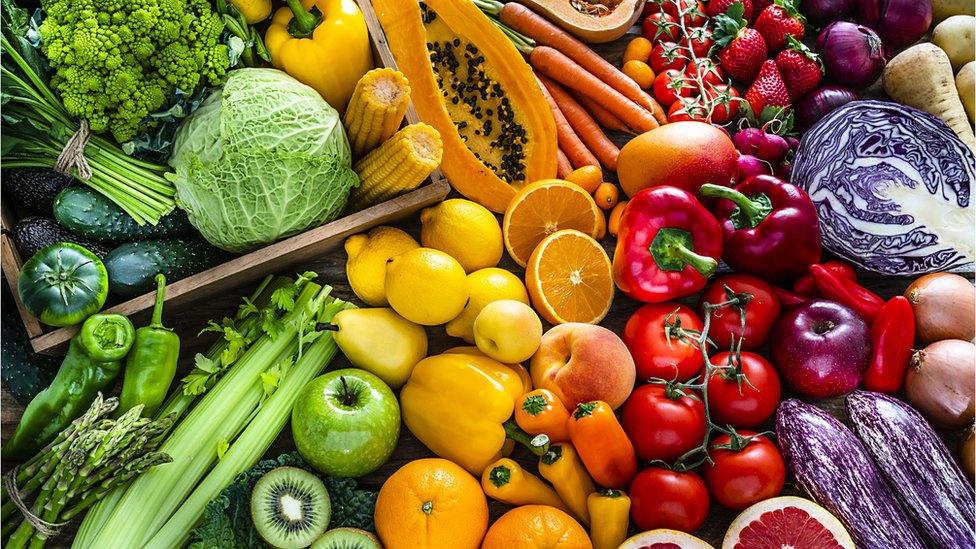Coronavirus: Food supply chains 'need a rethink'
- Published

The way we buy and sell food should be reviewed after the coronavirus crisis, an academic has said.
Dr Ludivine Petetin, from Cardiff University, said changes in global markets could lead to a worldwide food shortage in the coming months.
Last week, the Farmers Union of Wales said there was an "urgent need to safeguard domestic food security".
Dr Petetin said the weaknesses of the current "just in time" delivery system had been exposed by the crisis.
In the build-up and immediate aftermath of the coronavirus lockdown, there were shortages of items such as pasta, rice and toilet paper in supermarkets.
Dr Petetin said: "The problems is, as soon as you have a disruption in the supply chain this has an impact on the availability of food on the shelves."
She said problems could get worse in the coming months as a result of a change of export policies in other countries, citing the example of Cambodia and Vietnam banning exports of rice in order to feed their local populations.
Vietnam and Cambodia have banned exports of rice
"Of course we still see rice on the shelves at the moment, but in a few months time we may start to see the consequences of having these restrictions placed," she said.
"Those countries have done this to ensure stability in their countries so that people are food secure but, in the medium to short term, this could lead to food shortages for us and a food crisis worldwide."
She added this could result in increased food prices, which would affect the vulnerable.
Supermarket shelves were stripped of essential items as the pandemic reached the UK
Dr Petetin said buying food from local suppliers could be the answer to food shortages after lockdown ends and she wants policy makers to reflect this in the future.
"Buying local is really important," she said. "It reduces food miles, [it has a better] environmental impact, it also involves less processing, so food is more nutritious.
"What the crisis is showing is how resilient small shops and small family farms are, and I think this is something for the farming community to be proud of.
"They are diversifying, but they need to be supported and at the moment when coming out of the [EU] Common Agricultural Policy, and Wales is looking at its future vision for its agriculture, it's important to put an emphasis on small family farms."
You can hear more on this story on the Country Focus podcast on ģÉČËŋėĘÖ Sounds
- Published26 March 2020
- Published28 October 2019